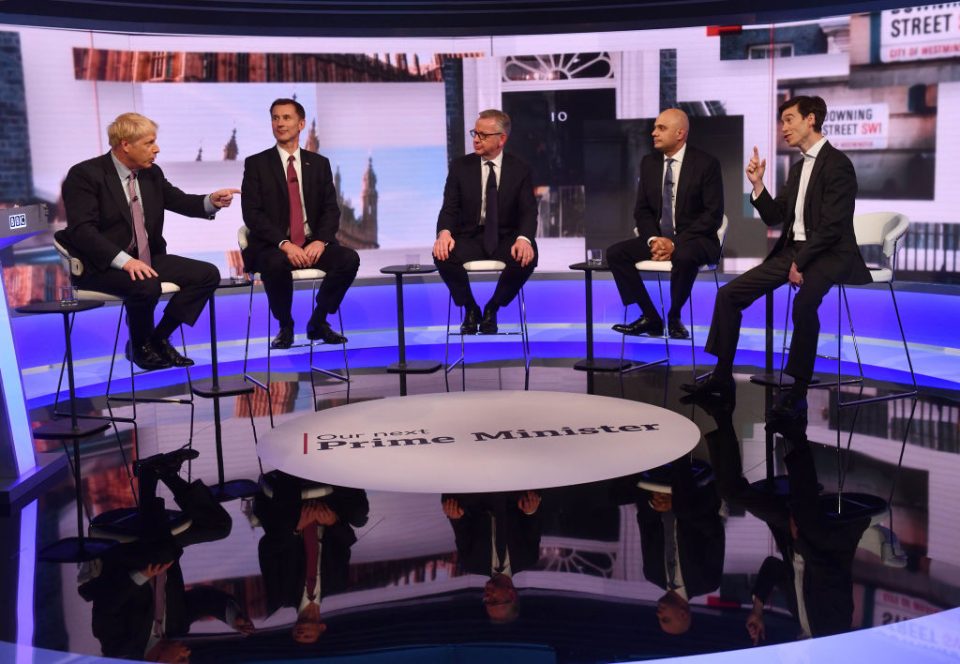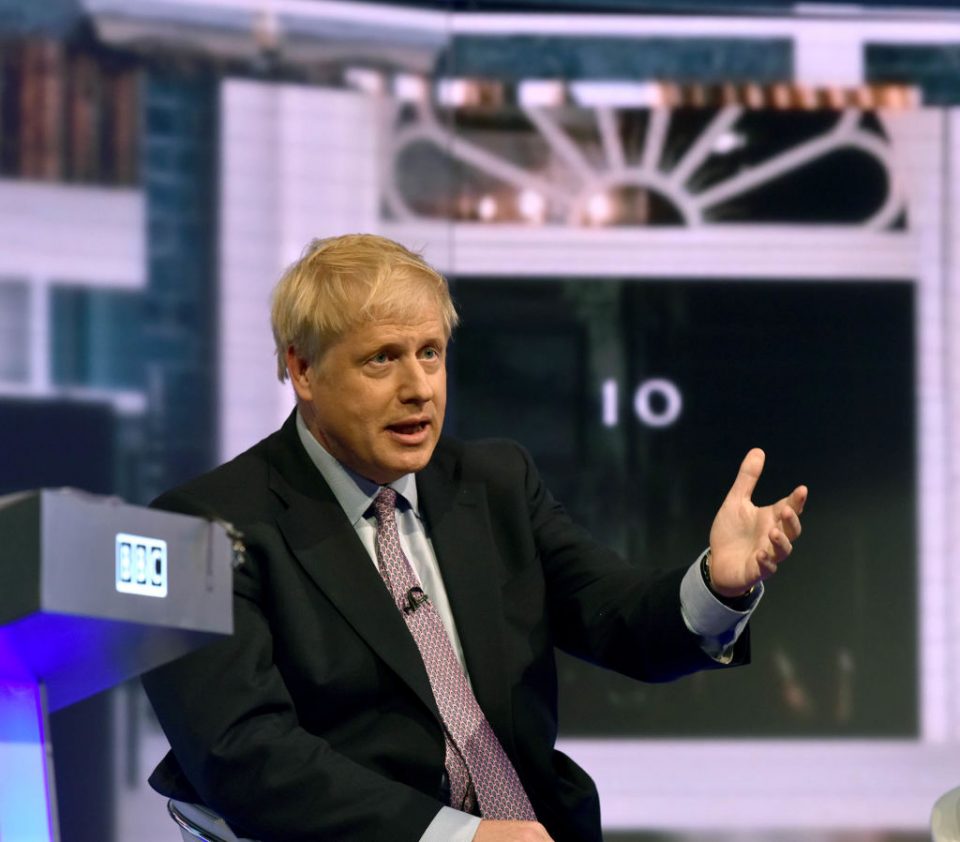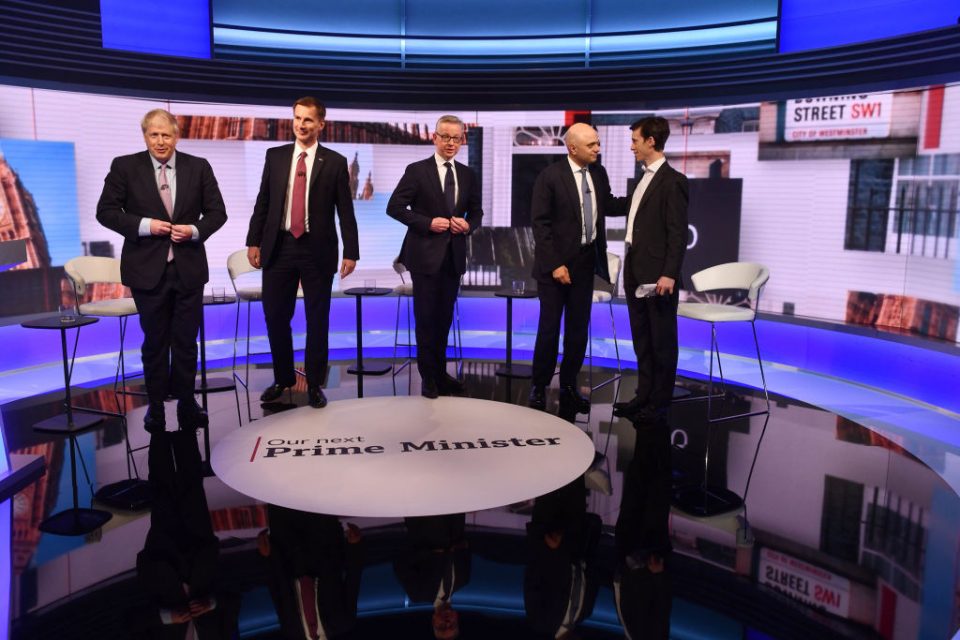Tory leadership hopefuls face new vote after TV clash

The five remaining candidates in the Tory leadership race face another round of voting today, as MPs react to their performances in last night’s TV debate.
Yesterday former Brexit secretary Dominic Raab was knocked out of the contest after he failed to secure the necessary 33 votes from MPs.
The candidates now face a third round of voting today, which will take place between 3pm and 5pm, with results announced at 6pm.
Read more: Dominic Raab knocked out of Tory leadership contest as Stewart storms through
This process will continue until only two remain. The 160,000 people that make up the Tory membership will then pick the next Prime Minister.
Yesterday’s debate marked the first time that front runner Boris Johnson has put himself up for significant media scrutiny. He went head-to-head with Rory Stewart, the international development secretary, foreign secretary Jeremy Hunt, home secretary Sajid Javid and environment secretary Michael Gove.
The candidates were quizzed on how they would deliver Brexit, the economy and tax, and climate change.
What were the key takeaways?
Brexit deadline
The five men, who are jostling to replace Theresa May as Prime Minister, clashed over whether they could promise to take the UK out of the European Union on 31 October, the deadline set by the bloc after May asked for an extension.
They also argued about whether a new deal could be reached with Brussels
Johnson said people were “fed up” with politicians for their failure to deliver Brexit and warned of a “catastrophic loss of confidence in politics” if the October deadline was not met. latest Brexit deadline was not met.
“If we allow 31 October to come and go as we let March come and go, I think the public would look on us with increasing mystification,” he said.

However, the former foreign secretary appeared to backtrack from his previous promise to leave the EU “come what may” at the end of October, saying now that it was “eminently feasible”.
Gove and Hunt both said they would be prepared to delay Brexit past the October deadline if it meant getting the right deal, while Javid, the home secretary, said one of the “mistakes” the UK had made was having a flexible deadline.
Stewart, the outsider in the race who has surprised colleagues with a late surge in momentum, is committed to passing May’s Brexit deal in parliament, despite the fact it has been rejected by MPs three times.
He is the only candidate to have ruled out leaving the EU without a deal, and accused his colleagues of lacking realism.
Will there be a new deal?
Stewart said there was no chance that Brussels would renegotiate the deal or the key sticking point, the Irish backstop, which is designed to prevent a hard border in Northern Ireland by keeping the UK in a temporary customs union with the EU.
Johnson said the UK could continue to trade freely with the EU after Brexit and cited Article 24 of GATT, which he said would allow the UK and EU to keep tariffs and quotas the same while the two sides struck a free trade agreement.
However, he did not point out that both sides need to sign up to this arrangement, which is unlikely to happen in a no-deal exit.
Javid suggested that the best way to push Brexit forward was by tweaking May’s deal to remove the Irish backstop – something that the EU has said is impossible.
Javid joined Hunt in saying that new technology could be deployed on the border to keep it open, but the EU has repeatedly said the technology to solve this problem is not yet ready and is not used anywhere else in the world.

Tax
As part of their campaigns to become the next Prime Minister, all of the candidates – bar Stewart – have unveiled plans to cut tax.
Johnson has caused the biggest stir by promising to cut taxes for around 3m people by raising the threshold at which people pay the 40p rate of tax from £50,000 to £80,000 if he became PM.
The move has been estimated to cost around £9.6bn a year.
However, the former London mayor appeared to water down the plan from a pledge to an “ambition”.
Gove criticised his plans, saying that rather than helping those who earned the salary of an MP, tax cuts should be focused on “helping the poorest in society”.
Read more: Tory leadership hopeful Rory Stewart: I can beat Boris and I will stick up for the City of London
Hunt said he wanted the first £1,000 that people earned to not be taxed with national insurance “to lighten the load”.
Hunt, who served as health secretary, also admitted he thought that cuts to care budgets under the current government had gone “too far”.